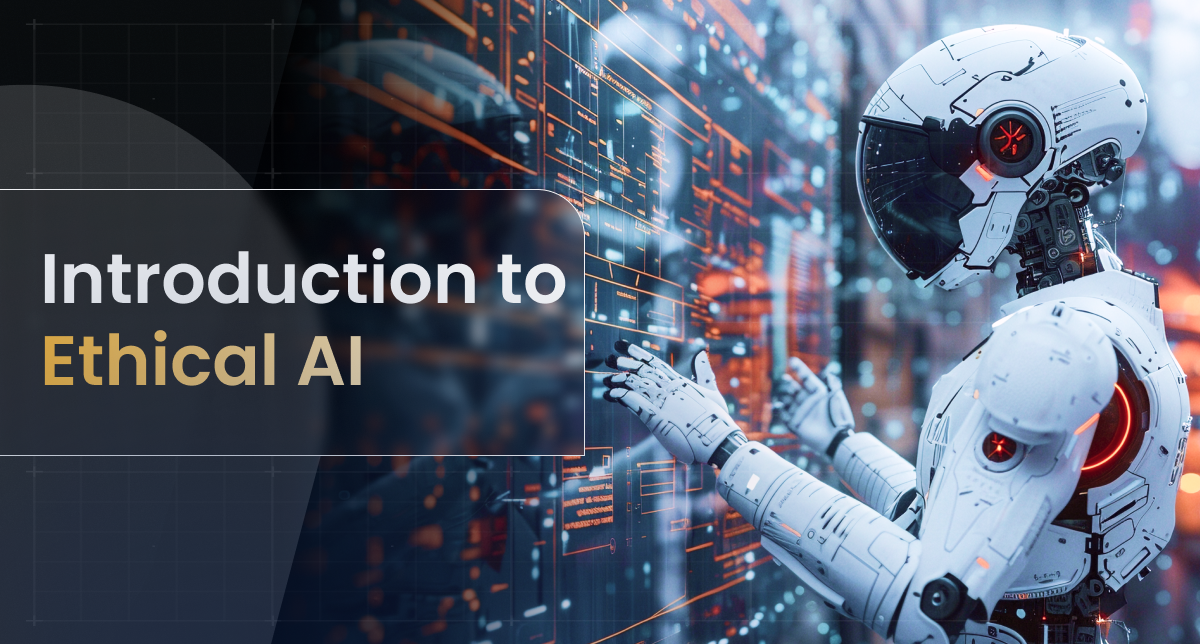As Artificial Intelligence becomes more integrated into our daily lives, the question of ethics has moved to the forefront of global debate. From hiring systems and credit scoring to facial recognition and judicial algorithms, AI now makes decisions that can shape people’s futures. But the growing concern is can machines ever be truly fair and unbiased?
While AI promises efficiency and objectivity, it also inherits the biases and imperfections of the humans who design and train it. This has led to a rising demand for ethical AI systems that operate with fairness, transparency, and accountability.
Table of Contents
Understanding the Problem of AI Bias
AI systems learn from data. If that data reflects social inequalities or historical discrimination, the AI can unintentionally amplify those biases. For instance, a hiring algorithm trained on company data may favor male candidates if the firm historically hired more men. Similarly, a facial recognition system may perform poorly on darker skin tones if the training dataset lacks diversity.
A famous example occurred in 2018 when Amazon’s AI recruiting tool was found to be biased against women, leading to its discontinuation. This case showed that even top tech companies can struggle with ethical AI challenges.
According to a study by the Massachusetts Institute of Technology (MIT), some commercial facial recognition systems had error rates of less than 1% for lighter-skinned males but over 30% for darker-skinned females a gap that sparked widespread concern about fairness in AI.
What Is Ethical AI?
Ethical AI refers to the development and deployment of artificial intelligence systems that prioritize fairness, transparency, accountability, and human rights. It’s about ensuring AI serves humanity, not harms it.
The European Commission’s Guidelines for Trustworthy AI outline seven key principles for ethical AI:
- Human agency and oversight
- Technical robustness and safety
- Privacy and data governance
- Transparency
- Diversity, non-discrimination, and fairness
- Societal and environmental well-being
- Accountability
These principles provide a foundation for governments, researchers, and companies to develop responsible AI technologies.
Causes of AI Bias
1. Biased Data
If training data contains imbalanced or discriminatory information, the AI learns those patterns and reproduces them.
2. Lack of Diversity in Development Teams
Homogeneous teams may unintentionally overlook biases that affect underrepresented groups.
3. Opaque Algorithms
Many AI systems function as “black boxes” their decision-making processes are too complex to interpret, making it difficult to identify where bias occurs.
4. Inadequate Testing
Failing to test AI systems on diverse datasets leads to errors and unfair outcomes.
The Global Push for Responsible AI
Governments and organizations worldwide are creating policies to promote ethical AI development.
- UNESCO’s Recommendation on the Ethics of Artificial Intelligence (2021) became the first global framework adopted by 193 countries to ensure AI respects human dignity and equality.
- The OECD AI Principles emphasize inclusive growth, transparency, and human-centered design.
- The European Union’s AI Act aims to regulate high-risk AI applications and enforce strict accountability for bias and misuse.
Tech companies like Google, Microsoft, and OpenAI have also launched internal AI ethics teams to review algorithmic fairness and establish responsible design guidelines.
Building Fair and Transparent AI
1. Diverse Data and Representation
AI systems must be trained on balanced datasets that represent all demographics. Diversity reduces bias and improves accuracy.
2. Explainable AI (XAI)
AI models should be transparent users must understand how decisions are made. Explainable AI tools help interpret model behavior and reveal potential bias.
3. Ethical Auditing
Regular third-party audits can assess fairness, detect discrimination, and ensure compliance with ethical standards.
4. Human-in-the-Loop Systems
Keeping humans involved in critical AI decisions helps balance machine efficiency with human judgment and empathy.
5. Inclusive Design
AI teams should include ethicists, sociologists, and minority voices to ensure cultural sensitivity and fairness in product design.
The Role of AI Ethics in Society
Ethical AI isn’t just about fairness — it’s about trust. If people lose faith in AI systems, innovation will slow, and resistance will grow. Trustworthy AI strengthens democracy, ensures justice, and promotes equality.
Moreover, as AI becomes integral to governance, law enforcement, and healthcare, ethical oversight ensures technology aligns with human rights and moral values.
Can Machines Ever Be Truly Fair?
Complete fairness may never be fully achievable because even human definitions of fairness differ. However, striving for ethical, accountable, and transparent AI can minimize harm and ensure that AI serves all of humanity equally.
AI should not aim to replace moral judgment but to support human decision-making with fairness and clarity.
The Future of Ethical AI
The next wave of AI innovation will focus not only on technological advancement but on moral intelligence teaching machines to understand fairness, empathy, and justice.
With growing collaboration between technologists, policymakers, and ethicists, the goal is to build AI systems that are not just intelligent, but also humane.
Conclusion
Ethical AI is the foundation of a responsible digital future. As AI becomes more powerful, ensuring fairness, transparency, and accountability is no longer optional it’s essential.
The challenge lies not in making machines perfect, but in making them aligned with human values. By combining innovation with integrity, we can build an AI-driven world that is not only smart but also fair, inclusive, and just for all.
Reference
Also Check AI in Healthcare – Powerful Revolution in Medicine – 2025


1 thought on “Ethical AI – Machines Ever Be Truly Fair and Unbiased – 2025”